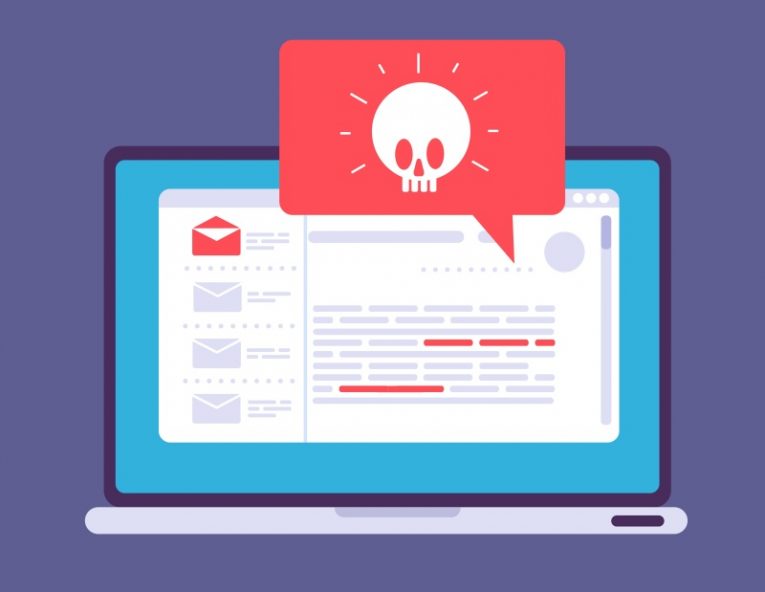Beware of the "You Have New Held Messages" Email Scam

In recent times, a malicious email scam has been making its rounds, masquerading as a legitimate message with the subject line "[recipient's_email_address] You have {16} Pending mails Error" (though the subject line may vary). This email falsely claims that the recipient has sixteen pending messages that will be deleted unless they are released into their inbox within a specified timeframe. However, it's crucial to be aware that this email is nothing but a scam, and it is not associated with any reputable service providers.
Table of Contents
Unmasking the “You Have New Held Messages” Phishing Scheme
Upon closer investigation, it becomes evident that the "You Have New Held Messages" email is designed to deceive recipients into taking action that could compromise their online security. When recipients click on the "Enable Data" button within the email, they are redirected to a phishing website cleverly disguised as an email sign-in page. Unsuspecting victims are then prompted to enter their email account login credentials. What they may not realize is that these login credentials are immediately recorded and sent to the scammers behind the operation.
An Inside Look at the Phishing Tactics in “You Have New Held Messages” Emails
The implications of falling victim to this scam are far-reaching. Once the scammers gain access to your email account, they can engage in a range of malicious activities. One primary concern is the potential for identity theft, where scammers can assume your online identity across various platforms, such as social media, email, or other online services. They may impersonate you to your contacts, friends, or followers, seeking loans or donations, promoting scams, or distributing malware through malicious links or files.
Moreover, compromised email accounts can also lead to financial losses. Cybercriminals can exploit hijacked finance-related accounts, such as online banking, money transferring services, e-commerce, or even cryptocurrency wallets, to make unauthorized transactions or online purchases.
Recognizing and Avoiding Email Scams: “You Have New Held Messages”
In summary, falling prey to spam emails like the "You Have New Held Messages" scam can result in severe privacy violations, financial hardships, and even identity theft. If you have inadvertently provided your login credentials to a phishing webpage, it's imperative to take immediate action. Change the passwords of all potentially compromised accounts and promptly inform their official support channels.
Unfortunately, this email scam is not an isolated incident. Cybercriminals employ various tactics to deceive unsuspecting individuals. Some other examples of phishing spam campaigns include emails with subjects like "Your Mail Version Is Currently Being Disconnected," "Signed Agreement," and "Emails Did Not Reach Your Inbox." These emails aim to trick recipients into divulging sensitive information or clicking on malicious links.
Protecting Your Privacy and Finances from the “You Have New Held Messages” Scam
It's important to recognize that spam emails are not limited to phishing attempts. They are also used to distribute malware, which can include trojans, ransomware, cryptominers, and more. These malicious payloads can be hidden within seemingly harmless attachments, such as PDFs, Microsoft Office documents, executables, archives, or JavaScript files. Once activated, they initiate the malware download and installation process.
To protect yourself from falling victim to such scams and malware infections, exercise caution when dealing with incoming emails and messages. Avoid opening attachments or clicking on links in suspicious or irrelevant emails. Additionally, it's advisable to use Microsoft Office versions released after 2010, as they include a "Protected View" mode that prevents automatic macro command execution, a common attack vector.
Remember that malware can also be encountered while browsing the internet. Fake and dangerous online content often appears legitimate and harmless, so exercise vigilance and avoid downloading files or programs from unverified sources. Stick to official and trusted channels for downloads and updates.
Stopping the You Have New Held Messages” Scam and Eliminating Associated Malware
Lastly, it's essential to have a reputable anti-malware program installed and regularly updated. This software should be used to conduct routine system scans and remove any threats. If you suspect that you've already opened a malicious attachment, consider running a scan with a trusted anti-malware program to safely eliminate any potential threats.
In a world where cyber threats are constantly evolving, staying informed and vigilant is the key to protecting your online security and personal information. Be cautious, question the legitimacy of unsolicited emails, and take proactive steps to safeguard your digital presence.








